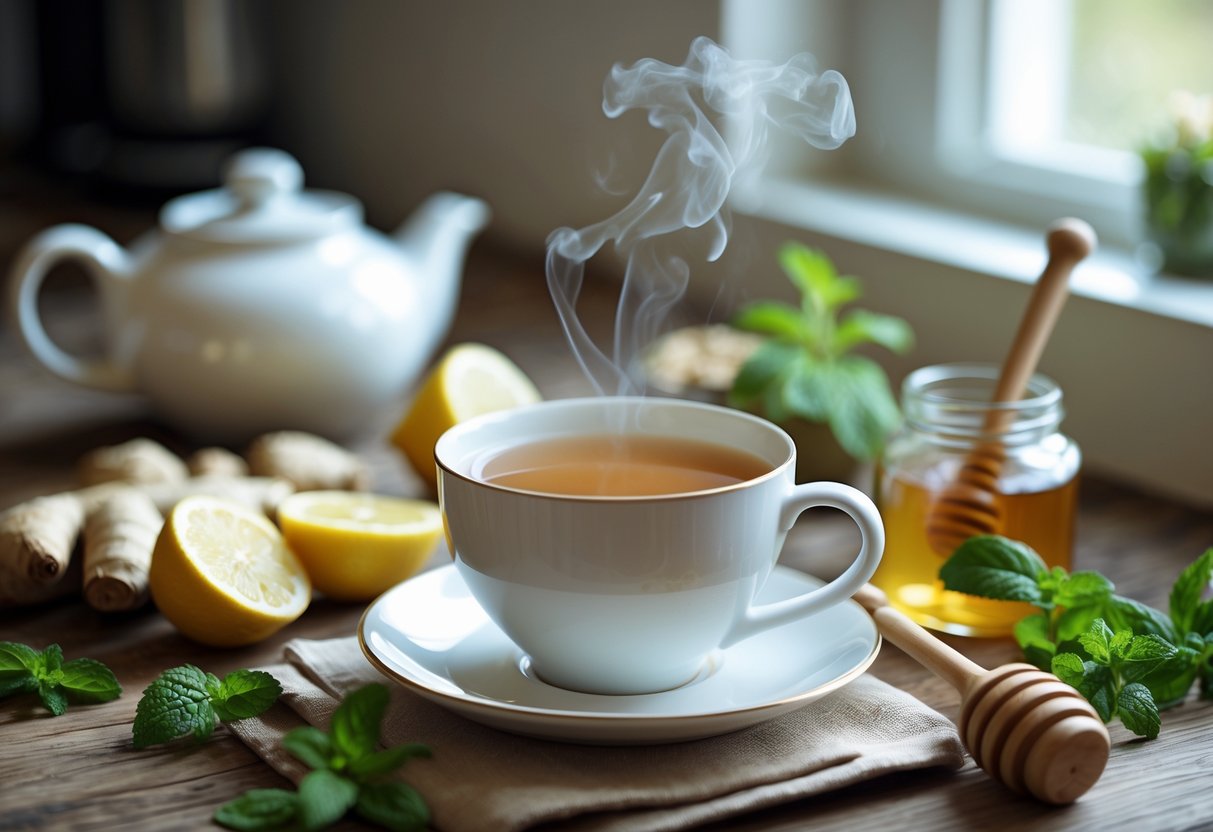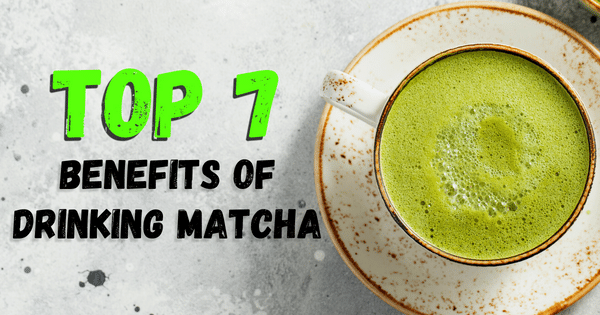What Tea To Drink When Sick For Fast Relief And Comfort

When you buy through links on our site, we may earn an affiliate commission at no additional cost to you (learn more)
Feeling under the weather often calls for comfort, rest, and something warm to ease the discomfort. Tea can help soothe a sore throat, settle a queasy stomach, or simply provide calm when nothing else seems to. The best tea to drink when sick depends on the symptoms—herbal blends like ginger, peppermint, chamomile, or green tea can each support the body in different ways.
They don’t cure illness, but they can make recovery more comfortable and support hydration when it’s hard to eat or drink much else. By understanding which tea helps with certain symptoms, anyone can choose what fits their needs best and avoid random guessing.
Best Teas for When You’re Sick
Warm teas can calm the throat, reduce congestion, and add comfort while recovering from an illness. Choosing the right tea depends on symptoms such as sore throat, cough, or fatigue, and whether someone wants a soothing or energizing effect.
Herbal Teas That Soothe Sore Throats
When the throat feels dry or scratchy, herbal teas help coat and ease irritation. Chamomile tea contains mild anti-inflammatory properties and helps relax the throat muscles, making it easier to swallow. Honey added to chamomile or licorice root tea can further calm discomfort by creating a protective layer in the throat.
Slippery elm and marshmallow root tea also help because they produce a soothing gel-like texture when steeped. Many find these teas gentle on sensitive throats.
Some prefer peppermint tea for its light cooling effect, which can reduce the feeling of tightness or heat in the throat. Drinking these teas warm—not hot—keeps the tissue from drying out or becoming more irritated. Regular sips throughout the day maintain comfort and hydration.
Teas for Easing Cold and Flu Symptoms
During cold and flu spells, teas rich in natural compounds can help with congestion, mild coughs, and body aches. Ginger tea supports the body by warming it and easing nausea. It may also reduce mild inflammation that can come with respiratory infections.
Lemon tea provides vitamin C, which supports immune health. Adding fresh lemon juice or slices boosts flavor and increases hydration.
Another helpful tea is echinacea, often used to support immune system function. Although research varies, some people find that it shortens the duration of cold symptoms. Green tea, though lightly caffeinated, contains antioxidants that may help fight free radicals linked to illness.
Caffeine-Free Options for Rest and Recovery
When rest is the goal, caffeine-free teas make good choices. Rooibos tea, naturally caffeine-free, offers a mild flavor and antioxidants without disrupting sleep. Lemon balm tea helps calm the nerves and reduce tension, making it easier to relax before bed.
Chamomile again stands out for promoting rest and gentle hydration. It’s safe to drink several times a day without stimulation.
For an upset stomach or chills, ginger and peppermint in caffeine-free blends can ease mild digestive discomfort. Drinking these teas warm before bedtime supports recovery by keeping the body hydrated and relaxed, helping it recover naturally overnight.
How to Choose the Right Tea When Ill

When someone isn’t feeling well, choosing the right tea can ease symptoms and support recovery. Different types of tea can help with sore throats, upset stomachs, or congestion, while others may make symptoms worse.
Selecting Teas Based on Symptoms
People should match the tea they drink to what they’re feeling. Ginger tea can help ease nausea and improve digestion. Peppermint tea may reduce sinus pressure and relieve headaches. For sore throats or coughs, chamomile or licorice root tea can soothe irritation. Green tea has antioxidants that may help the body fight infection.
Warm liquid helps open airways and keeps the body hydrated. However, it’s best to avoid drinks that are too hot, which could irritate the throat. Some teas include a bit of honey or lemon, which can coat the throat and calm coughing.
| Symptom | Helpful Teas |
|---|---|
| Sore throat | Chamomile, Licorice root |
| Congestion | Peppermint, Eucalyptus blend |
| Nausea | Ginger, Lemon |
| Fatigue | Green tea, Mild black tea |
People should drink tea several times a day in small sips for steady comfort instead of one large cup.
Teas to Avoid During Illness
Not all teas suit those who are sick. Highly caffeinated teas, like strong black teas or matcha, can cause dehydration or restlessness. These might also upset the stomach if someone hasn’t eaten much. Flavored teas with added sugar or artificial ingredients can irritate the throat or worsen coughing.
Those with acid reflux or stomach pain may want to skip citrus-based teas, which can increase discomfort. Herbal blends that contain stimulants, such as guarana or ginseng, can interfere with rest and sleep.
Checking tea labels helps avoid unexpected additives that could trigger allergies or react with medication.



